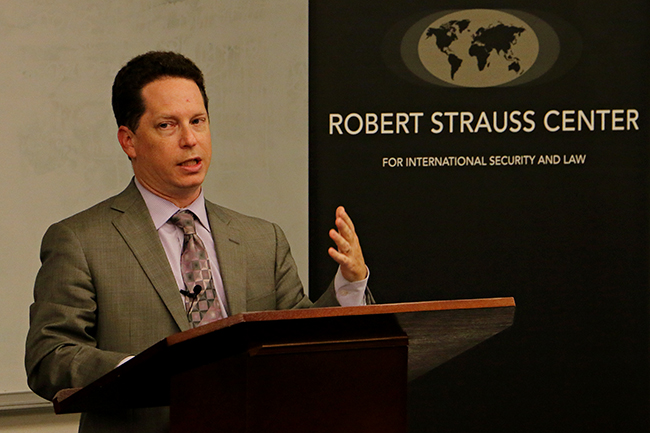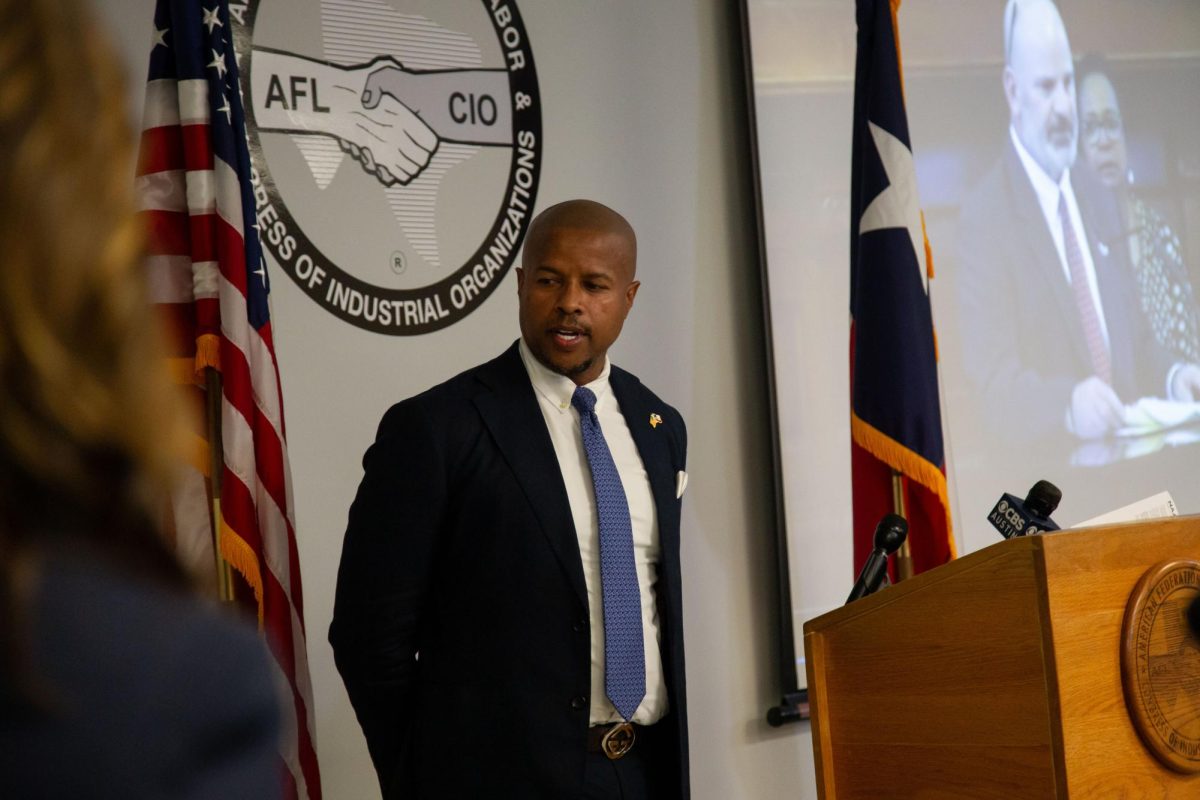America’s current strategy of engagement with China has not been successful and is not likely to improve without change, according to Scott Kennedy, director of the Project on Chinese Business and Political Economy at the Center for Strategic and International Studies.
“The hope of Washington is that the more you engage China, the more they’ll like us,” Kennedy said. “That’s a pipe dream.”
Joshua Eisenman, assistant professor for public policy, said the U.S. has had a consistent policy of engagement with China for generations.
“There is now a question about whether or not this has been successful in stopping China from disrupting the region,” Eisenman said. “As a result, people are asking for a containment approach.”
It would be more appropriate to have a U.S. strategy that combines engagement with containment, according to Kennedy.
Man-Han Gu, Chinese international student and public affairs graduate student, said she does not believe the U.S. should take aggressive policies towards China.
“I feel that both countries have an interest in each other,” Gu said. “More knowledge about the other side will help to relieve the status quo.”
There are key actions the U.S. can take to improve their strategy with China, Eisenman said.
“First, America must obtain more information about the nature of Chinese decision-making and Chinese policy makers,” Eisenman said. “Then, the U.S. must be more modest because we seem to think we have more influence in China than we have. Lastly, American policy makers should speak more about policy messages instead of their personal opinion.”
China must also take action to cooperate with the U.S. about maritime security in places such as the South China Sea, according to Kennedy.
“The U.S. Navy patrolling the South China Sea is not a threat,” Kennedy said. “They could sign a code of conduct with other islands in the South China Sea, but instead they are militarizing it.”
Gu said the best way for each nation and its students to improve relations is to simply have a better understanding of each other.
“UT students can also benefit from trying to focus on U.S.-China relations,” Gu said. “For example, if you are a business major or an energy major, it is likely that you will be working with Chinese people in the future.”
Kennedy spoke at the kickoff event of the China Speaker Series created by the Robert S. Strauss Center and the Center for East Asian Studies. The series was created to encourage conversations about policies regarding China’s role in international affairs.




















